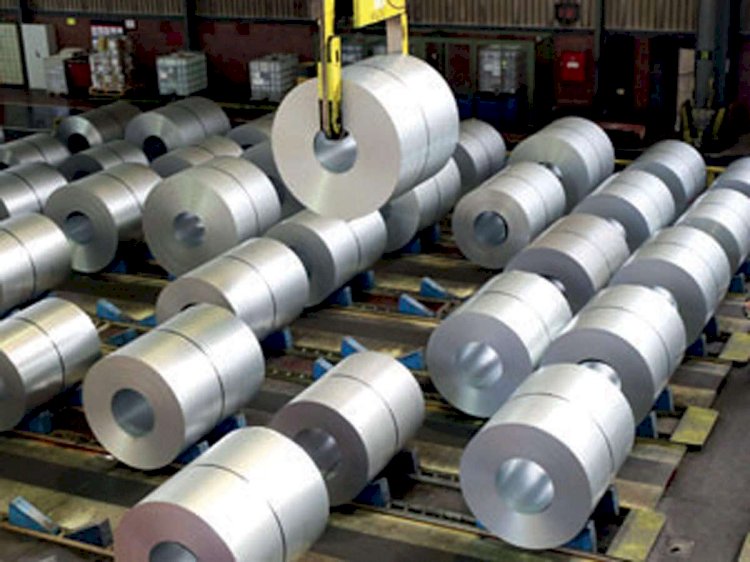Forging industry seeks ban on steel, iron ore exports
“Steel prices have increased by 25 to 30% in the last three months, putting the forging industry at serious risk, particularly when we are still recovering from COVID-inflicted business losses and the resultant pressure on cash flow, and cash reserves," AIFI president Vikas Bajaj said. Steel typically constitutes 60 to 65% of the ex-factory value of forgings.

The forging industry today urged the government to ban steel and iron ore exports, as domestic steel prices shot up 25-30% in the last three months due to increased exports and squeezed supply in the local market Forging steel manufacturers have hiked prices by 10% over the last six months and now looking for a further 15% increase. The initial increase was impossible to sustain, and the further hike in prices will prove to be disastrous, Association of Indian Forging Industry (AIFI) said in a release.
As much as 80% of the ₹34,000 crore domestic forging industry comes from the automobile industry. “Steel prices have increased by 25 to 30% in the last three months, putting the forging industry at serious risk, particularly when we are still recovering from COVID-inflicted business losses and the resultant pressure on cash flow, and cash reserves," AIFI president Vikas Bajaj said. Steel typically constitutes 60 to 65% of the ex-factory value of forgings.
"The industry is still going through a very difficult time and is not in a position to absorb losses. I believe that rising demand for steel, low steel production for the domestic market due to increased steel exports are the prime reasons for price hikes. “The Forging Association requests the government to consider a ban on steel and iron ore exports so that demand for steel within the country can be met in a cost/price-effective manner," he said.
Stating that steel prices at the moment are at unprecedented highs, the association said increased demand amid low allocation of production for the domestic market coupled with minimal imports due to import restrictions imposed by the Central government, domestic steel manufacturers have increased the prices twice in the current quarter for forging quality steel and three times in the current month for other types of steel. The benchmark hot-rolled coil prices in the wholesale market (ex-Mumbai) have increased 43 per to ₹52,000 per tonne from ₹36,500 per tonne in July, which indicates that the prices of forging quality steel will be further revised upwards in the immediate future in line with the increases in the prices in hot-rolled coil prices, it said.
The price increases of steel in the domestic market are due to the increase in exports to neighbouring countries and the resultant reduction in supply within the domestic market, AIFI said.The trend is contrarian to the prices of steel in the European and American markets, thereby reducing the price competitiveness of the Indian manufactures in these markets, besides forcing the manufacturers to absorb the increases on existing orders, resulting in incurring losses on them, AIFI stated.
According to AIFI, India's iron ore exports have increased by 63%, mainly motivated by the record steel production in China, which is the world's largest steel manufacturers.India's iron exports increased by 133% to 37.69 million tonnes in the April-July 2020 compared to the same period in FY19, the association said, adding more than 80 per cent of these exported to China.
"Therefore, domestically produced iron ore in India has met the needs of another country before catering to our requirements. If Indian steel prices are higher than international steel prices that will lead to exports becoming uncompetitive. Export rates have risen sharply in post-COVID and they have almost doubled," AIFI said.
India's exports of finished and semi-finished steel to China increased sharply this financial year despite the growing border tensions. Also, India's overall iron and steel exports to China in the first five months of this fiscal year were more than three times the amount for the entire fiscal year 2019-20, it added. Another factor that can be attributed to steel manufacturers to increase prices is minimal imports from other countries. Japan and Korea, the main two exporting countries to India apart from China, are exporting more to Europe due to the restrictions placed on imports into India, the association said.
"Steel export is the major reason for the rate hike. Large mills are preferring to export steel to neighbouring countries. Also, orders have been booked for Europe, the Middle East, etc., which is one reason for the shortage of steel in India. Thus, steel companies are in a position to increase prices at their will due to the gap in supply and demand," AIFI Vice President Yash Jinendra Munot said. The government should consider banning the export of steel and iron ore for the next six to eight months or till such time that the local demand is met and should look at regulating steel prices for domestic consumption, he added.






























